
The Narwhal picks up four Canadian Association of Journalists award nominations
From investigative reporting to stunning photography, we’ve been recognized with four 2024 CAJ Awards nods...
The Doug Ford government has never explained to Ontarians exactly how it chose which parcels of Greenbelt land to open to developers. That process has been a burning question ever since environmental protections were slashed on 7,400 acres of farmland, wetlands and endangered species habitat last fall.
Many times over many years, Premier Ford and Municipal Affairs and Housing Minister Steve Clark promised to leave the green space that rings around the Greater Toronto Area untouched. They broke that promise last November by announcing that they were taking 15 chunks of land out of the Greenbelt, setting off a firestorm of public anger in Ontario.
Then an investigation by The Narwhal and the Toronto Star revealed that many of the areas where protections were being erased were owned by developers who were big donors to the Progressive Conservative party, or whose lobbyists had worked in the offices of Ford and his caucus. At that point, the matter of who knew what and when became an issue not just of transparency, but ethics. Five months on, the fallout continues: Ontario’s auditor general is investigating the financial implications, while its integrity commissioner is considering rules around conflicts of interest and insider information. The Ontario Provincial Police is deciding whether to launch a probe as well.
Ever since the Greenbelt decision was announced, The Narwhal’s Emma McIntosh, who reported the investigation with the Star, has been trying to piece together how it all happened. Her digging has uncovered the existence of what seems to be a key document — one that could lay out which politicians or bureaucrats chose the parcels, when they laid out their reasoning and whether Ford and Clark are being honest in their depiction of how it all unfolded.
The Narwhal knows for a fact this document exists. The government said so in response to a freedom of information request, one that Emma made in February based on intel she and The Narwhal’s other Ontario reporter, Fatima Syed, gathered from their sources in and around Queen’s Park.
The bad news is the government is refusing to release the document. This is a troubling lack of transparency on a matter clearly in the public interest. How can members of the public know whether politicians made the right decision if they don’t have access to the evidence that was used to support that choice?
But it’s no surprise — a reluctance or outright refusal to provide journalists with information is the norm in The Narwhal’s dealings with the current Ontario government. This resistance is a violation of democracy that will affect Ontarians for generations to come. The public has a right to know.
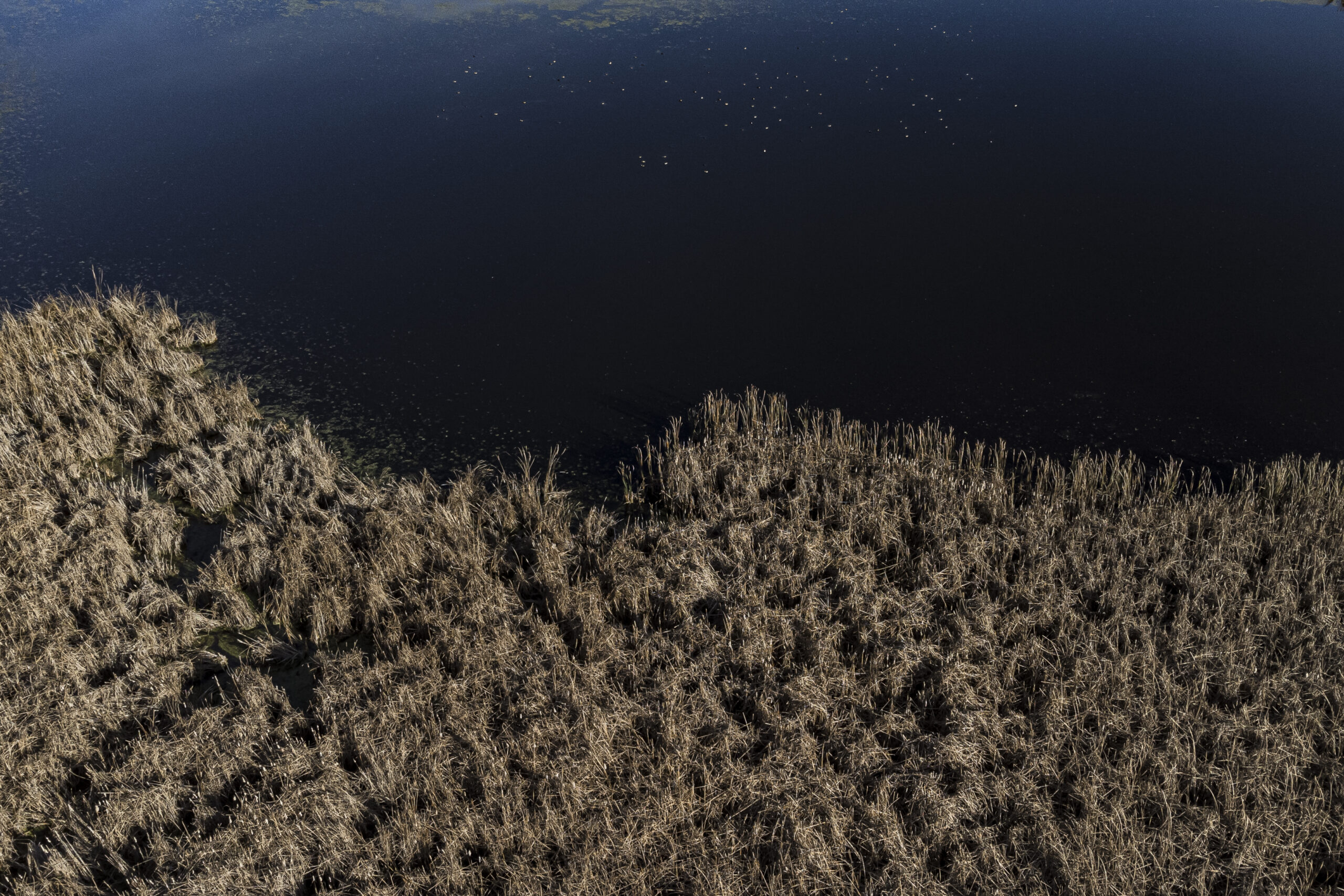
Ford and Clark have told the public one story about how the Greenbelt land openings happened.
Here’s how their narrative goes: speaking to the province’s integrity commissioner after complaints from opposition parties, Ford and Clark said staffers in the housing ministry were the ones that selected the 7,400 acres. Clark said he was briefed on their proposal after the selection process was done. Ford said he saw the proposal a few days later when Clark presented it to cabinet, shortly before the idea was made public on Nov. 4.
Both have denied tipping anyone off about which parcels would be opened. Yet a number of developers with ties to the government had curiously impeccable timing. The Narwhal/Star investigation showed that multiple developers made big purchases right before the announcement, with one spending $80 million on 700 acres of entirely protected land just weeks before its protections were dropped.
At face value, Clark and Ford’s accounting doesn’t answer obvious questions about what happened. It doesn’t reveal who directed bureaucrats to select parcels of Greenbelt land for removal in the first place, or what parameters they gave. It also doesn’t explain the staffers’ reasoning.
The government has said the idea is to open land on the edges of the protected area, close to existing urban infrastructure needed for new homes. But some of the opened areas don’t fit that description, like the ecologically sensitive Duffins Rouge Agricultural Preserve. It’s right next to Rouge National Urban Park: together, the two spaces contain important habitat and migration corridors for species at risk, including the Blanding’s turtle, bank swallow, eastern meadowlark, wood thrush, red-headed woodpecker, monarch butterfly and several types of bats.
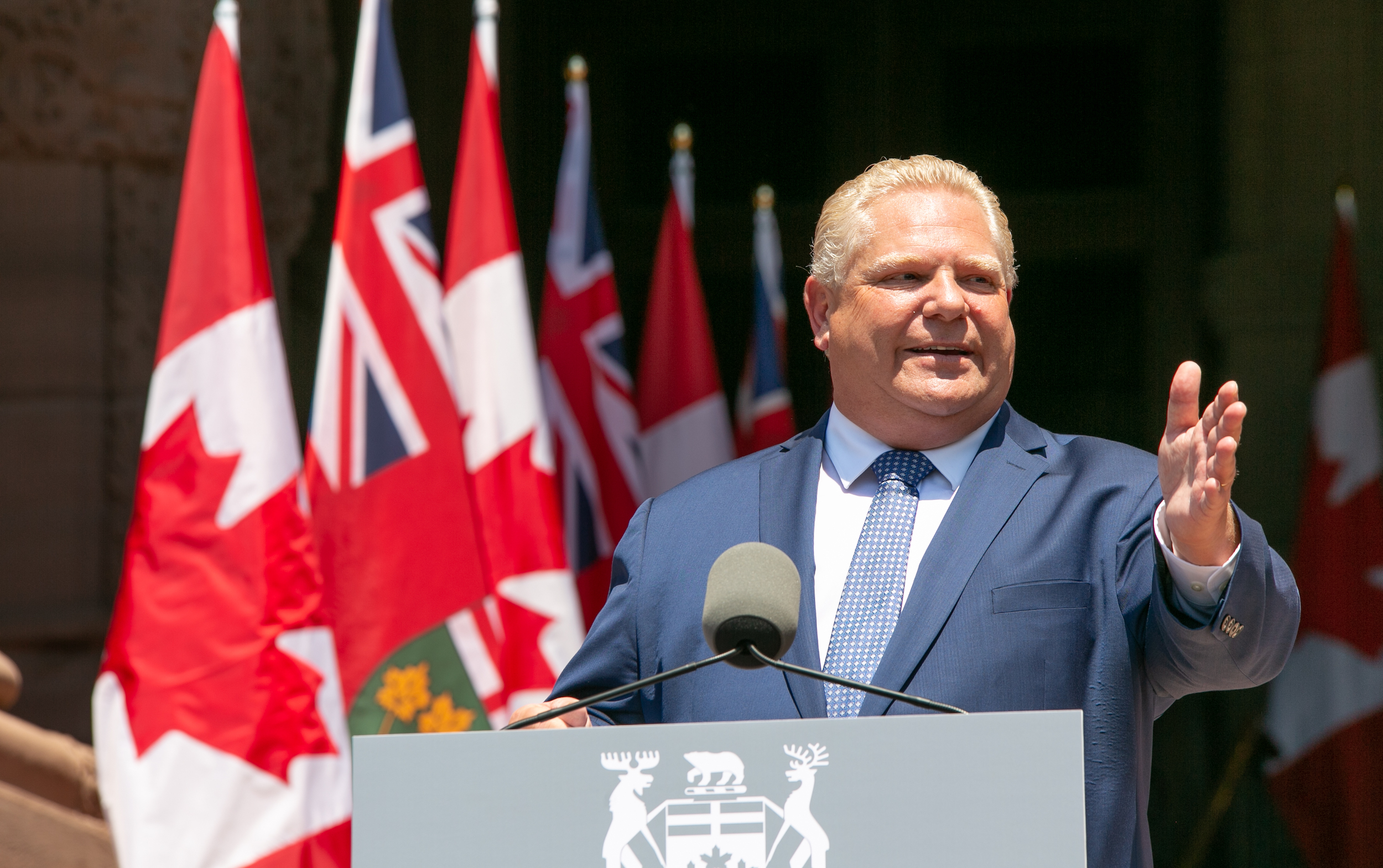
“There’s no question in my mind, and I think in the minds of many Ontarians, that something smells fishy here and Ontarians deserve answers,” Ontario NDP Leader Marit Stiles said earlier this year about the Greenbelt land openings. In announcing their scrutiny of the sales, the auditor general, integrity commissioner and provincial police each stated that they’ve received a barrage of requests from the public.
The document Emma is asking for could prove or disprove Ford and Clark’s telling of what happened with the Greenbelt. But it’s been eight weeks since she asked the Cabinet Office, the government entity that includes the Premier’s Office, for all Greenbelt-related files sent from Ford’s office to Clark’s ministry in the weeks leading up to the announcement. We’re not much closer to getting answers.
In mid-March, the Cabinet Office confirmed that it located one such record — in a phone call, the advisor handling Emma’s freedom of information request said it’s an email with a slideshow attached, but declined to reveal the date it was created, the size of the file or any other details. The government says it can keep all of this secret because the document relates to cabinet deliberations. Some portions fall under other exemptions, like solicitor-client privilege.
We don’t know exactly what the email and slideshow contain. Maybe they show Ford’s cabinet signing off on the Greenbelt proposal put forward by bureaucrats, confirming the premier’s story. Maybe they show the opposite, or shed light on whose instructions those bureaucrats were following. Maybe it’ll be none of those things. Regardless, it seems more than likely that what’s in these documents could help settle the debate over what happened, or at least better inform it.
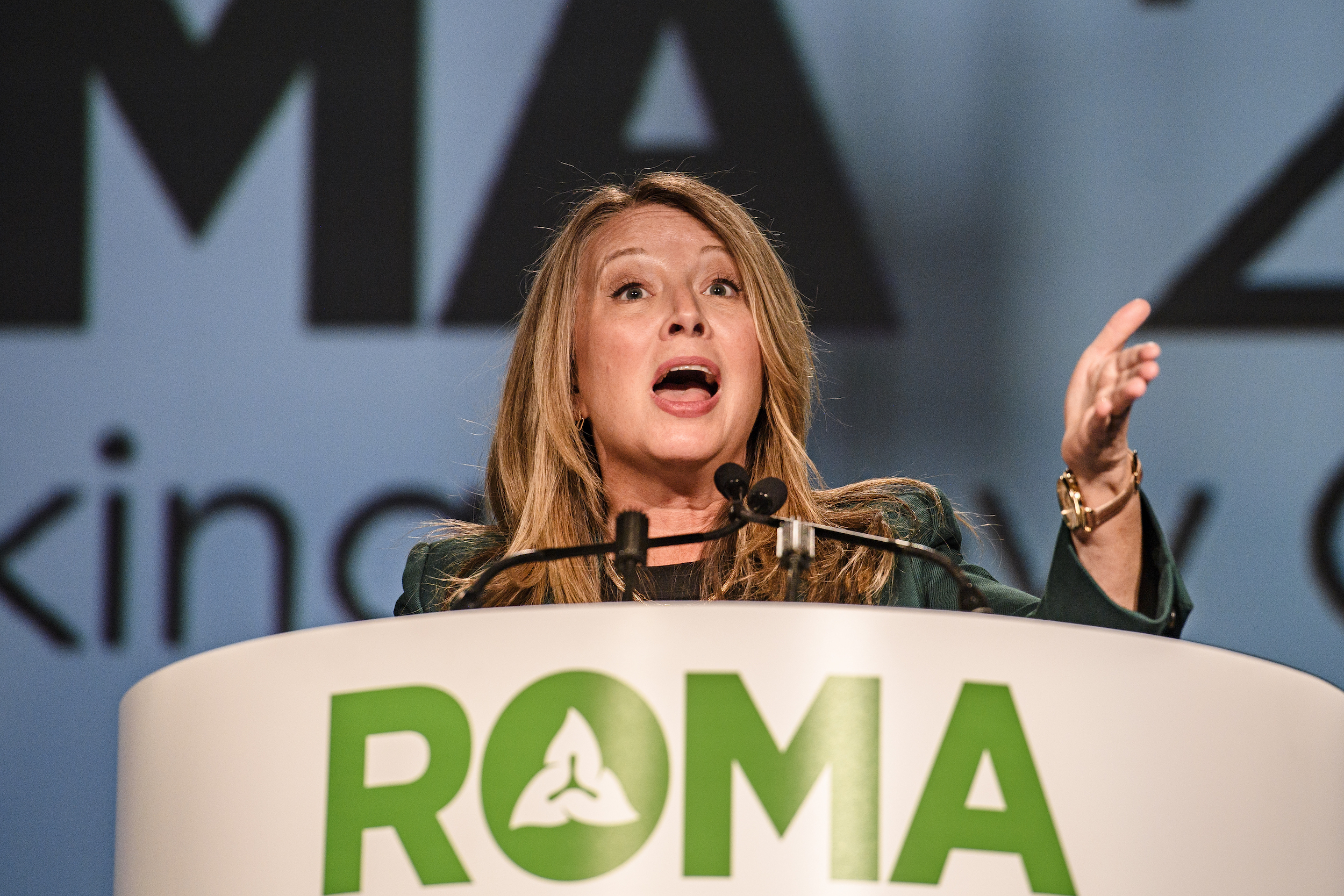
Ontario’s NDP filed a similar freedom of information request, which was also denied. The party asked the Cabinet Office specifically for documents related to the decision to open Greenbelt land. It, too, was told that one record exists but would be withheld, according to a letter shared with The Narwhal. Based on the parameters of that request, it appears that the relevant document — which is probably the same one unearthed by The Narwhal’s request, but might not be — was created on or before Oct. 24, 2022, about two weeks before the Greenbelt changes were announced.
Under Ontario’s Freedom of Information and Privacy Act, the government can refuse access to some records when it has a valid reason. The legislation says that one provision for refusing access is there to protect lawmakers’ ability to freely discuss ideas and issues around the cabinet table, to explore options and arrive at decisions without having to censor themselves.
But — and this is important — a government can always choose to release such documents if it believes the public should see them. Prime Minister Justin Trudeau partially waived cabinet confidence for investigations into the SNC-Lavalin affair in 2019, and former prime minister Brian Mulroney waived it entirely for a 2008 inquiry into his dealings with German-Canadian businessman Karlheinz Schreiber. We have no indication the Ontario government will, though: Caitlin Clark, a spokesperson for Ford’s office, didn’t reply to an email from The Narwhal asking for the release of the document.
What’s also important is that this is part of a pattern in the Ford government’s dealings with journalists at The Narwhal. A few weeks ago I published a story on how the provincial and federal governments are approaching the future of disaster relief, as extreme weather caused by climate change intensifies — and Ontario pushes through development that many experts believe could heighten flood risk.
I sent an email asking questions about Ontario’s approach to flood relief and mitigation to Ford’s office, Clark’s office, the office of Natural Resources and Forestry Minister Graydon Smith, and a bureaucrat in the housing ministry who was on a federal flood response task force. Not one of them acknowledged my questions or my three follow-ups in the weeks that followed, let alone answered them.
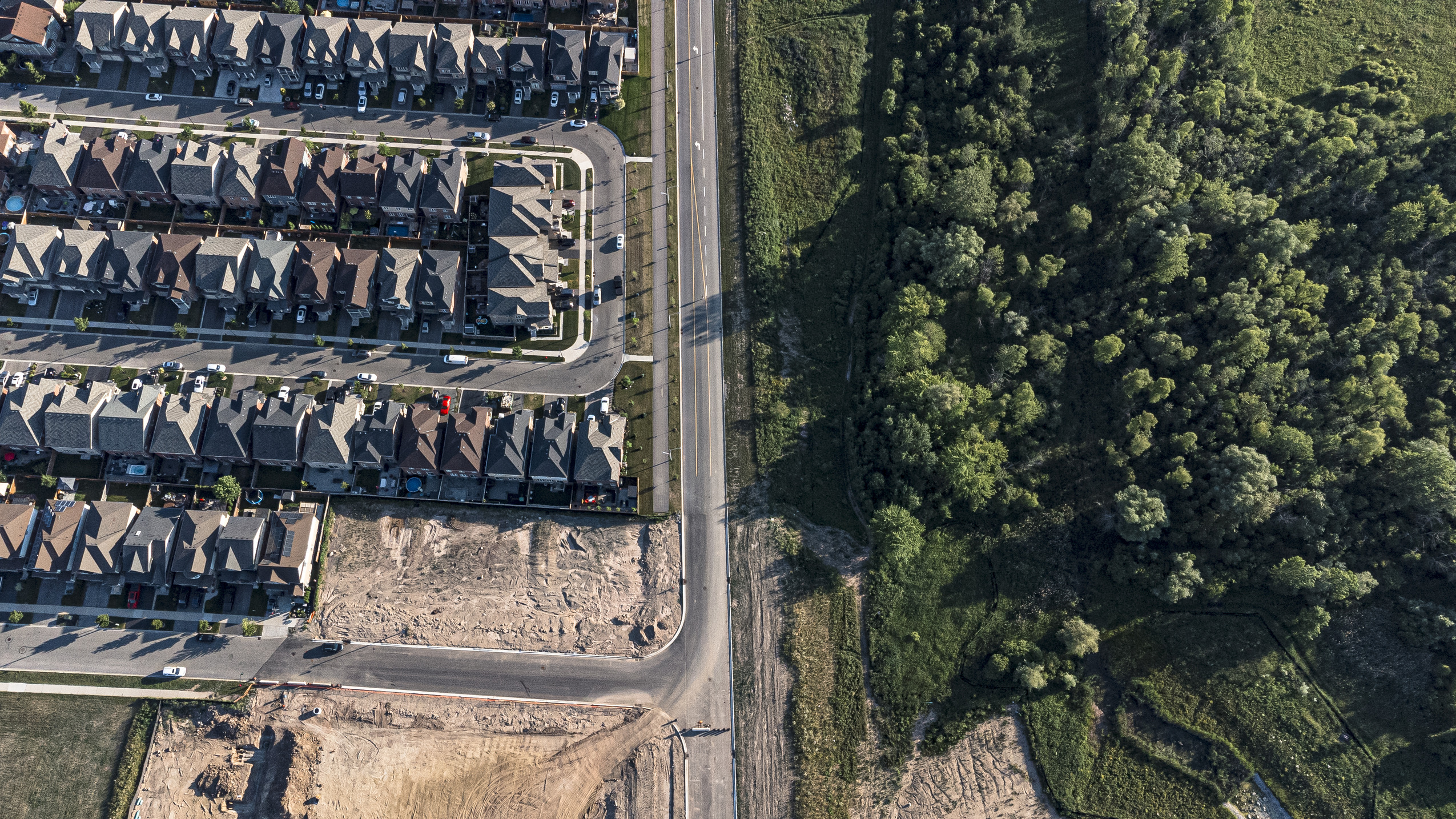
Fatima has been trying to talk to Ontario’s deputy minister of emergency preparedness for months, and been told repeatedly that he’s “unavailable” for an interview, in any time frame. Ontario just pledged $110 million in public money toward disaster relief, but is refusing to answer public questions about its plans or priorities.
Emma and Fatima are used to being treated with contempt for doing their jobs and trying to get information to the public. Emma once passed the Minister of Mines, George Pirie, in the halls of Queen’s Park and asked if she could ask him a question: he brusquely said “no,” and kept walking. Fatima was told by a member of a minister’s staff that he wouldn’t ever take her calls. He instructed her to contact him by email, only — and, I guess, shrug her shoulders when her queries received canned, insufficient responses, or no responses at all.
Politicians have no obligation to answer our questions. There’s also no law against being rude to journalists — our job requires a tough skin and the determination to keep digging when people in power clearly want us to stop.
I do wonder if the government treats our independent, all-woman bureau differently than it does reporters from bigger, legacy media outlets. But the truth is, most of our colleagues at other news organizations don’t get much more information out of the Ford government, even if the non-responses they receive are a bit more congenial.
Whether with a smile or a snarl, the government refuses to explain its actions. In fact, the public servants who helped decide what land to lop off the Greenbelt were subject to an “enhanced confidentiality protocol.” That type of directive says a lot about how Ford and his caucus value transparency and democracy.
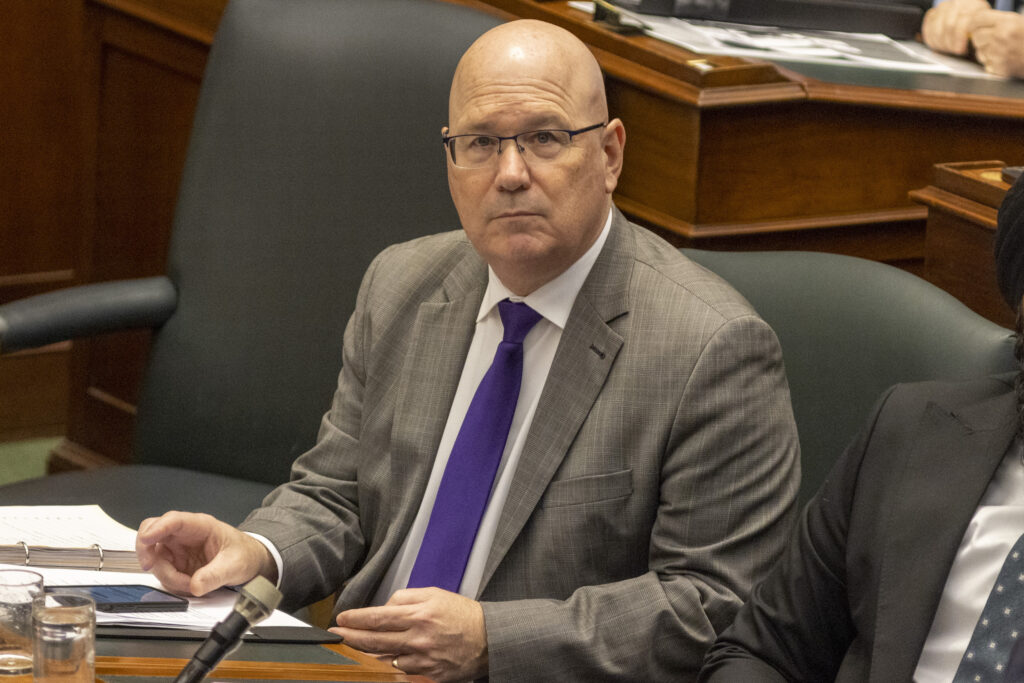
This is why so much of The Narwhal’s reporting in Ontario is built on freedom of information requests. Emma has filed 17 requests to the province about the Greenbelt decision and another eight about Bill 23, the controversial More Homes Built Faster Act, which has weakened or eliminated environmental protections to speed up development. Of those, three responses said there are no relevant records, while four actually turned up paperwork.
The rest are outstanding. Clark’s Ministry of Municipal Affairs and Housing has been particularly slow: it hasn’t acknowledged six requests sent between December and February and is still processing five others sent during that period.
Fatima has filed 24 requests about development, including Bill 23. Of those, two have come back with no records. Most are still being processed. In some cases, the government requested she pay hundreds of dollars in search fees, while asking for extensions that could force her to wait months before getting documents that have been heavily redacted by government censors, making them essentially unreadable.
Seven of Fatima’s requests remain completely unacknowledged, all of them aimed at records of the work done by Clark and his ministry.
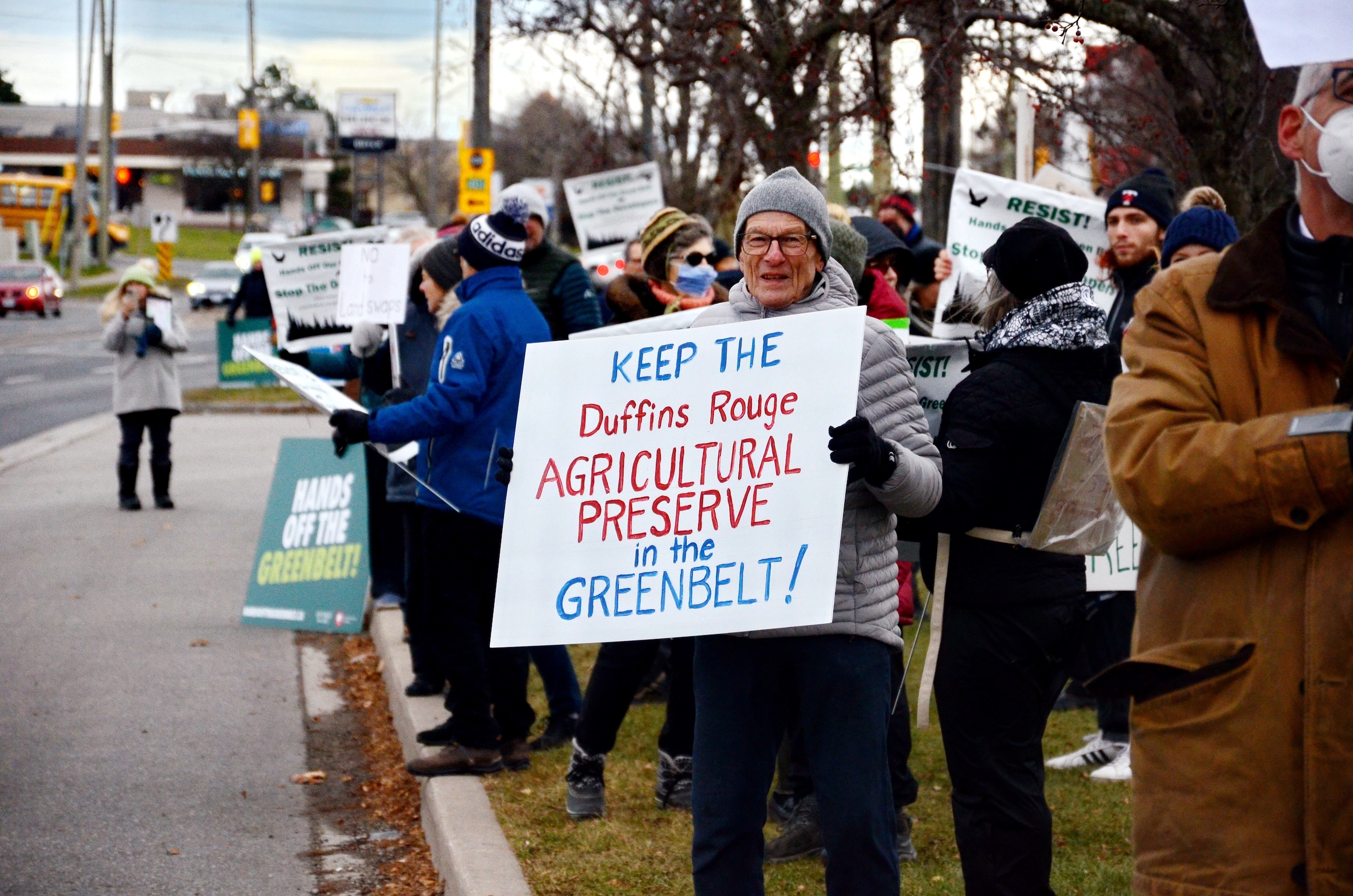
Again, this is all public information, but accessing it isn’t free: to date, these 49 development-related requests (and both reporters are filing more, about other topics) have cost The Narwhal over $2,000.
The most important thing here is that the information we’re asking for — including this particular email with this particular slideshow attached — is clearly in the public interest. The public has said so itself, loudly, which is why the Greenbelt decision is currently being examined by not one, not two, but three public bodies.
Auditor General Bonnie Lysyk told The Narwhal she cannot say whether, in the course of her investigation, she has seen the documents Emma wants access to. The same goes for the Ontario Provincial Police, which hasn’t decided yet if it will launch a full investigation, and the office of Integrity Commissioner David Wake. Emma has filed an appeal in the hopes of seeing the document herself, first — she’s the queen of Greenbelt scoops, after all — but if we can’t have that, we’d love to at least see it in one of the many reports digging into just how these decisions were made.
In the meantime, we’ll keep sending emails, making phone calls, talking to sources and filing access to information requests. It’s all in the name of bringing information of public interest, about politicians spending public dollars, into the light.
Get the inside scoop on The Narwhal’s environment and climate reporting by signing up for our free newsletter. On March 17, federal Conservative Leader Pierre Poilievre...
Continue reading
From investigative reporting to stunning photography, we’ve been recognized with four 2024 CAJ Awards nods...

The Narwhal is expanding its reach on video platforms like YouTube and TikTok. First up?...

Locals in the small community of Arborg worry a new Indigenous-led protected area plan would...
